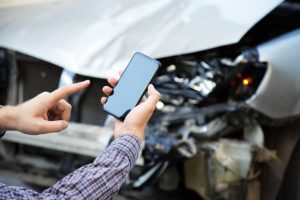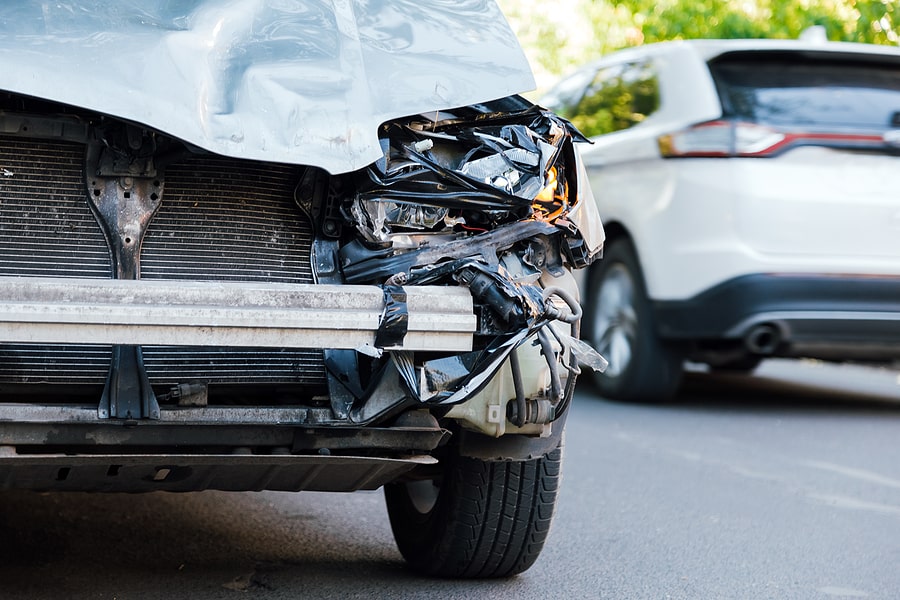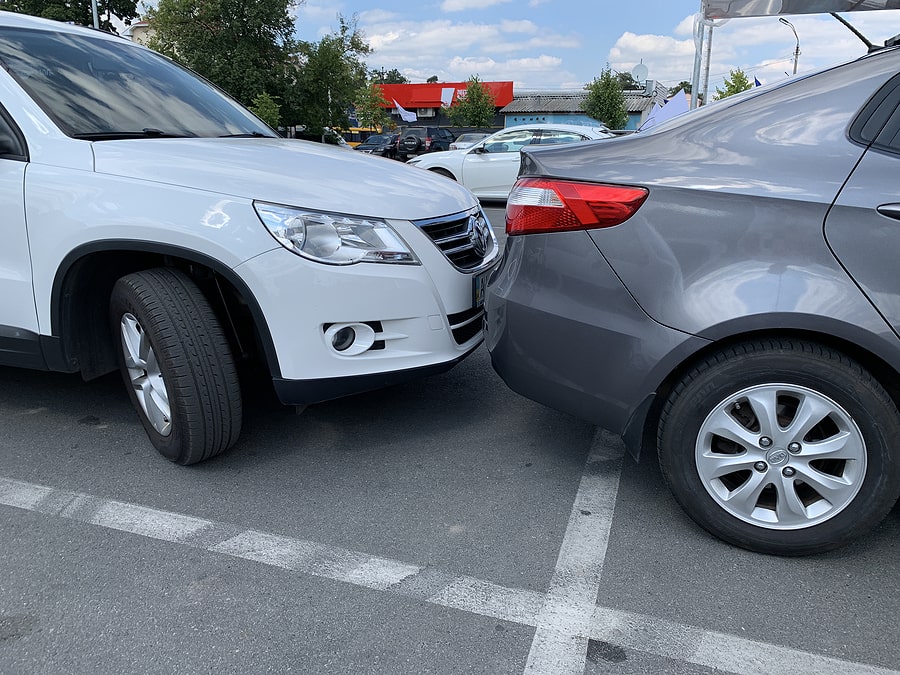After any car accident, even a minor one, there’s plenty of stress to deal with. Determining liability can be one of the biggest conflicts you encounter.
In some cases, fault is clear as day. For example, if you were waiting at a red light and were rear-ended by a speeding car, it seems obvious who was at fault for the accident!
Other times, however, drivers — and their insurance companies — will be locked in a battle of blame.
If your car accident insurance claim has been denied or disputed, you don’t have to throw in the towel and give up hope. Don’t pay for damage you didn’t cause! You should never be held legally liable for something that wasn’t your fault.
If you’re being treated unfairly by an insurance company, a car accident lawyer can help you untangle the mess. Below, we’ll answer some important questions about the fault determination process and how to dispute fault after a car accident.
Table of Contents
Who Determines Fault in A Car Accident?
Fault can be determined by several people or groups, such as insurance companies and their insurance adjusters, or a judge and/or jury in a courtroom if the case gets escalated to a personal injury lawsuit.
Most car accident claims tend to follow the same pattern: When you report an accident, your insurance company and the other driver’s insurance company will begin investigating in order to determine fault.
But just how do insurance companies determine fault?
After an accident is reported, the insurance company will attempt to collect statements from drivers, passengers, and witnesses. They will also review photographs of the scene and send an insurance adjuster out to take a look at the damaged vehicles in person. Once they believe they know the cause of the accident, the insurance company will assign fault to one or more drivers. (Yes, fault can be shared. More on that later!)
Evidence Needed to Determine Fault in a Car Accident
Are you being blamed for an accident you did not cause? By collecting evidence from multiple sources, a car accident lawyer can put together the pieces of the puzzle and prove you were not at fault.
The evidence that is used to determine fault in a car accident case is generally divided into two categories:
Physical Evidence
Physical evidence after a car crash includes but is not limited to:
- debris from the scene of the accident
- the damage done to the vehicles (most notably: the points of impact)
- injuries sustained by victims
- photographs and surveillance footage
Witness Testimony
Witness testimony includes statements from the following individuals:
- bystanders who saw the accident happen
- the drivers involved in the accident
- police officers who responded to the scene
- doctors who treated the victims
- expert witnesses brought in by your lawyer, including investigators, accident reconstruction specialists, and more
A reputable car accident injury lawyer knows how to collect the appropriate evidence to determine fault. However, sometimes insurance adjusters make mistakes during their own fault determination process or only take partial evidence into consideration. What options do you have then?
What if Fault is Wrongly Attributed?
If an insurance company is wrongly blaming you for a car accident you did not cause, here’s how to dispute fault:
-
Immediately contact the insurance company to dispute their findings.
Contact them by phone and in writing. A paper trail (or email trail!) is important in matters like these. “Creating a record of disagreement” sounds like a bad thing, but it’s actually helpful in this case! Be consistent and stand firm in your assertion that you did not cause the accident. Naturally, your letter should include the specific information you are disputing, as well as evidence that proves why the insurance company is wrong. Keep a copy of this letter for yourself, as well as copies of all other communication from the insurance company.
-
Obtain a copy of the police accident report.
Insurance adjusters lean heavily on the information in a police report, but what if the report contains mistakes like incorrect or incomplete information? You may be able to make a correction or addendum. You and your car accident attorney have the right to investigate the facts and amend any errors found in the crash report. If facts like your identifying information, your insurance carrier, or your car’s make or model are wrong, you can easily correct these by providing the proper documentation. If you are disputing other judgments written in the report — such as fault — you can write down your own version of events. Always have your car accident lawyer review this written statement prior to submission. Your statement can be included in the report as supplementary material.
-
If you received a ticket or a citation, you must fight it in court.
Prior to your court date, you and your lawyer can also attempt to speak with the investigating officers. Fighting a traffic ticket isn’t always a good idea, but if an officer truly made a mistake, you don’t want it on your record! You may be able to have the ticket or citation dismissed in exchange for completing a defensive driving course.
Additionally, if you disagree with a fault determination, you may make an appeal. Typically, a third-party mediator will be brought in to hear your side of the story. Provide them with only the facts and do not let your emotions get the best of you. A car accident lawyer can provide valuable guidance during this time. (Remember, you are entitled to legal representation while disputing a ticket.)
As a last resort, if you are still met with resistance, you can escalate the matter to a civil lawsuit against the insurance company. If you believe your car crash claim is going to court, you will definitely want a lawyer by your side for this step! When a jury determines fault in a car accident case, your lawyer will first present them with the same evidence we previously mentioned.
When you dispute a claim, you and your lawyer aren’t the only ones investigating. It’s likely that the other party and their team will do a deep dive as well. If you are asked to give a recorded statement to the insurance company, always consult with your lawyer first.
The details of each case will be different, but a car accident injury lawyer can help you determine exactly how to dispute a wrongful fault determination.
Can At-Fault Drivers Still Collect Compensation?
Short answer: yes. When it comes to car accidents, things aren’t always black and white and “I’m right, you’re wrong.” In many car accidents, the drivers share fault for the crash. For example, maybe one of them was over the speed limit and the other was looking down at their phone.
In states with no-fault car insurance, the whole blame game is pretty irrelevant. Why? Because injured car accident victims are expected to collect compensation from their own insurance company, regardless of who caused the accident. They can only make a liability claim against the other driver if their injury damages exceed a certain threshold. (Vehicle damage claims are handled separately, and fault may still come into play.)
However, Texas is a comparative fault state that follows the 51% bar rule. This means even if you were partially responsible for your accident, you may still be entitled to compensation under Texas car accident law!
In a comparative fault state, you compare who is more at fault. If a driver is found to be primarily at fault for an accident, they must take financial responsibility for it. Liability insurance is required for all Texas drivers in order to cover accidents like these. But in many cases, errors from more than one person contribute to a car crash. It all depends on how much of the accident was your fault. A car accident attorney can help you sort out the specifics, but here’s a quick overview:
If you are hurt in a Texas car accident and are found to be less than 51% responsible for the accident, you can collect money from the at-fault driver and their insurance company. However, the final car accident insurance claim settlement may be reduced by your degree of fault. These fault percentages are determined by consulting the evidence we mentioned above.
The higher your percentage of fault, the lower your final payout will be. In Texas, if you are more than 51% at fault, you receive nothing. But if you are 50% at fault, your final settlement will be reduced by half. Make sense? Here’s an example of the math in action: if you are determined to be 20% at fault for an accident with another driver and you suffered $50,000 in damages, you and your attorney could still pursue $40,000 in compensation.
Unfortunately, Texas at fault accident laws state that a victim cannot recover any damages if they are found to be 51% or more at fault. If you are found wholly or even partially at fault after a car accident, your auto insurance rates could increase as well.
What to Do After A Car Accident

- Take photos. Take photos of the damaged vehicles as well as the surrounding area and signage. (If you are too injured to follow this step or others, don’t push yourself. Try asking a bystander while you await medical treatment.)
- Exchange info. Use your phone to take pictures of the other driver’s license, insurance information, and plates. Collect contact information from any witnesses at the scene as well.
- Call the police. Call the police to report the accident. This step is important, as at-fault drivers often don’t want to get the police involved. Don’t let them dissuade you — a police accident report can serve as vital evidence.
- Get examined for injuries. Getting prompt medical attention prevents an insurance company from arguing that you “weren’t really hurt.”
- Contact a lawyer. If you are being blamed for a car accident you did not cause, you need someone who can protect your rights and stand up for your innocence. A car accident lawyer can help you plan your moves carefully and improve your chances of receiving a satisfactory settlement. Having a lawyer on your side will also show the insurance companies that you mean business and cannot be taken advantage of. If you don’t want to be dismissed, ignored, or stuck in a game of phone tag with flaky insurance companies, it may be time to get a lawyer!
- File an accident claim. Call your insurance company as well as the other driver’s insurance company to report the accident and begin the accident injury claim process. Your lawyer can help you successfully complete this process.
Throughout these steps, do not apologize and do not admit to anything. You don’t want to accidentally take responsibility for something you did not do. Do not offer or accept money from the other driver, either.
Why You Need to Hire A Lawyer After A Car Accident
When drivers, insurance adjusters, and even police are contradicting your version of events, it can feel like the deck is stacked against you. The insurance companies have professional investigators and insurance adjusters on their side; why should you have to fight them all alone? A car accident attorney can help you by:
- collecting evidence
- settling fault disputes
- meeting important deadlines
They can also be vital advocates during the settlement negotiations that follow. A car accident lawyer can help strengthen your case in numerous ways while you focus on recovering. If you try to build your entire case alone, you may miss out on crucial evidence or be taken advantage of.
Unfortunately, insurance companies are only trying to protect their bottom line.
If you’re being blamed for a car accident you did not cause, let us lend a hand. A resolution may be in sight.

It’s a common misconception that lawyers are expensive, but in car accident injury claims, you could end up with more money in your pocket than if you hadn’t hired a lawyer. Plus, personal injury lawyers work on a contingency fee basis. This means you pay them nothing at all upfront! They collect their fees from a portion of your final settlement award.
We know every car crash is different, and so is every ensuing case. If you partner with a car accident lawyer from our team, we’ll help you create a personalized strategy for success. With over 20 years of experience, our experts are ready to assist you. Get your free consultation right now!





